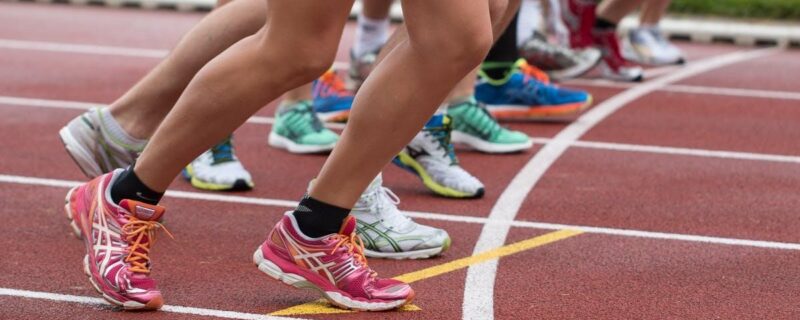Alcohol misuse is one of the most common substance misuse problems among athletes. It affects professional athletes as well as student-athletes. In fact, the NCAA Student-Athlete Health and Wellness Study reports that up to 71.7% of the 23,272 student-athletes who participated in the study consumed alcohol within the past year. While binge drinking among American athletes is on a downward trend, a significant number still encounter a decline in their athletic performance due to alcohol consumption.
Effects of Alcohol on Sports Performance
Alcohol affects people differently, even when it comes to athletic performance. Several factors come into play, such as the type of alcoholic beverage, the amount of alcohol consumed, the athlete’s tolerance level, and how close to competition or training the alcohol is consumed.
Athletes dedicate time and discipline to their training, competitions, and overall lifestyle. However, even the most committed athletes can see their hard work go to waste due to alcohol misuse. Even just a few drinks can impact an athlete’s endurance, physical strength, and mental fortitude, potentially derailing their performance and progress.
Alcohol and Cognitive Skills
Long-term alcohol misuse has been linked to poor cognitive performance. It affects the processing of information, working memory, focus, attention, and more. Even in the short term, alcohol can cloud your thinking leading to poor decision-making and performance.
Alcohol impairs the brain’s hippocampus which is responsible for memory. This makes it harder for athletes, especially in sports like football and basketball, to remember plays, strategies, and other crucial game details.
Alcohol and Energy Levels
Alcohol causes water imbalance in the muscle cells, hindering the production of adenosine triphosphate (ATP) —the energy currency of your body. With reduced ATP, energy levels can drop and your endurance takes a hit. Normally, your liver helps by releasing glucose into the bloodstream producing blood sugar and giving your energy levels a boost. Drinking alcohol, however, can interfere with the liver’s ability to produce blood sugar leaving you with less energy to draw from.
Athletes need high and consistent levels of energy to stay on top of their game during training and competitions. Frequent alcohol consumption can undermine overall performance due to low energy and weakened endurance.
Alcohol and Reaction Time
Alcohol is a sedative, which means that even small amounts can significantly slow down your reaction time and impair your performance. It also messes up hand-eye coordination, making it harder for you to respond quickly and accurately.
Dulled response capabilities compromise your ability to think and react making you more prone to making mistakes. This can manifest when making split-second decisions or instinctive moves. As an athlete, even a slight delay in reaction time can cause you the game or result in an otherwise preventable injury.
Alcohol and Muscle Development and Recovery
Alcohol, especially when consumed long-term, can diminish protein synthesis. This impedes muscle growth and hinders optimal performance. This especially holds back athletes competing in sports where strength is required, like bodybuilders.
Alcohol can further cause dehydration and throw off your electrolyte balance. This can result in cramps and an increased risk of muscle pulls and muscle strains. On top of that, alcohol can disrupt sleeping patterns impacting human growth hormone (HGH) production. With decreased HGH, muscle building and recovery take a hit.
Alcohol and Recovery from Injuries
Alcohol can slow down healing time and recovery. All the more reason for athletes to abstain from alcohol. This is especially true in sports like boxing where cuts and bruises are all part of the game.
Alcohol can increase the bleeding and swelling around injuries like sprains, bruises, and muscle injuries. There’s also the possibility of alcohol canceling out the effects of treatments or medications. Moreover, alcohol tends to numb the pain which can make you think that treatment is not needed. This could cause further damage to the injury resulting in longer recovery time.
Alcohol and Nutrient Absorption
The negative effects of alcohol on athletic performance can be attributed, up to some extent, to the alcohol’s impact on nutrient absorption. Alcohol hinders an athlete’s optimal performance as it keeps the body from absorbing nutrients like Vitamin B1 (for metabolism), Vitamin B12 (for nerve health), Folic Acid (for endurance), and Zinc (for energy metabolism).

How Long Does Alcohol Affect Athletic Performance?
According to experts, alcohol can impair athletic performance for up to 3 days or 72 hours. This includes the following skills and abilities which are crucial for athletes to stay on top of their games:
- reaction and response time
- balance and hand-eye coordination
- precision and accuracy of movement
- judgment and decision-making
- stamina and endurance
- strength and power
Alcohol can also slow down recovery time from injuries further prolonging its effect on the athlete’s overall performance. On top of that, alcohol can have more long-term effects that can permanently impact athletic performance and possibly damage an athlete’s career. Long-term effects include:
- weakened immune system
- organ damage (especially of the liver, pancreas and brain)
- Increased risk for certain kinds of cancer
- Increased risk for high blood pressure and heart disease
Alcohol is one of the most addictive substances and is quite easy to access. It’s also widely accepted as part of socialization and relaxation, even among athletes. Unfortunately, many athletes get trapped in the allure of alcohol and eventually face the short-term and long-term effects of alcohol on their athletic performance. The severity of the effects can vary based on factors like amount of intake, alcohol tolerance, and more. Regardless, it’s best to immediately seek professional help when the drinking seems to get out of hand.
FAQ
Does alcohol affect stamina?
Yes, alcohol can affect an individual’s stamina. It disrupts energy production, impairs muscle function, and dehydrates the body. All of these can lower one’s endurance levels and make it harder to maintain stamina during physical activities like sports.
Do Olympic athletes drink alcohol?
Yes, some Olympic athletes do drink alcohol, but it is typically in moderation and away from competition periods. While many focus on maintaining peak physical condition, occasional alcohol consumption is not uncommon, depending on individual choices and cultural practices.
Is alcohol addiction common among athletes?
Alcohol use disorder is not exactly common among athletes, but alcohol consumption can be pretty common. The pressures of competition, stress, and social environments may contribute to some athletes developing unhealthy drinking habits though AUD remains less frequent in this population compared to others.
Ditch the Alcohol and Improve Athletic Performance
Alcohol can seem like a harmless way to unwind after all the hard work you put into your training or competition. However, it can easily spiral into a problem that could derail your athletic career.
We have seen firsthand how alcohol can take a toll on the physical and mental health of even the strongest athletes and have developed a treatment program tailored for athletes and individuals looking for a personalized experience. Positive Sobriety Institute offers comprehensive rehab for professional athletes in Chicago. Alongside clinical treatment, we have integrated mindfulness training, family and individualized counseling, relapse prevention plans, and more to support the holistic recovery of athletes. We provide compassionate, expert care as well as a safe and discreet place that fosters long-term sobriety.
Let us help you successfully ditch the alcohol so you can return to your athletic career and stay on top of your game! Schedule a consultation today!


